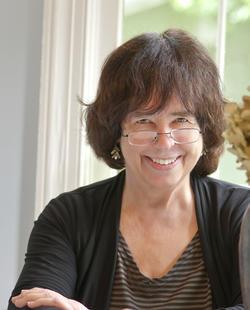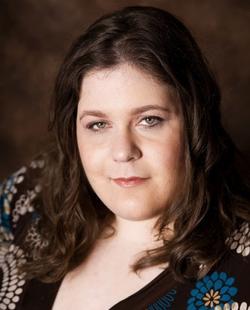Fantasy Authors
In 2010, a Jewish Review of Books article asserting that Jewish authors don’t write fantasy precipitated an Internet uproar. Commentators named hundreds of Jewish authors who write about magic, mythical creatures, quests, and adventures—two of whom are Jane Yolen and Rachel Swirsky. Yolen has written almost 300 fantasy and fairytale-inspired books, and was recently named a Grand Master by the Science Fiction & Fantasy Writers of America, an award honoring lifetime achievement. Swirsky has written more than 70 short stories and has twice won the prestigious Nebula Award. Both women expand the definition of the fantasy genre and use their work to espouse themes of social justice.
Jane Yolen has been called both the Aesop and the Hans Christian Andersen of America. She published her first book, a children’s story called Pirates in Petticoats, at age 22 in 1963. Since then, she’s written picture, middle-grade, and adult books, as well as realism, fantasy, poetry, and criticism. But when fans think of a Jane Yolen story, they’re likely to think of her engagement with folklore and fairytale. The evocative images in her stories carry cultural resonance from the tales that have been part of western culture for generations.
Some of Yolen’s work explicitly engages with Jewish history and themes. Her first published writing was a series of Jewish folktale-inspired poems in The Chicago Jewish Forum. Several years later, she wrote The Devil’s Arithmetic, a novel about a Jewish girl who’s transported back in time to a concentration camp. This harrowing story won the National Jewish Book Award. She followed up with Briar Rose, which blends the fairytale Sleeping Beauty with a story about the Holocaust and about memory and family. Her work also draws on Jewish history beyond the Holocaust; other works include Naming Liberty, a Jewish immigrant story, and And Twelve Chinese Acrobats, a book inspired by her Ukrainian Jewish immigrant father.
As a Jewish female writer who cut her teeth at a time when women struggled in publishing even more than they do now, Yolen’s prolific and varied oeuvre is unified by its underlying feminism and commitment to social justice. Yolen centers many of her stories around women, from the young journalist who strives to discover the truth about her family in Briar Rose to the girls in the fantastical Great Alta trilogy who learn from priestesses how to summon their dark doppelgängers. Besides writing empowering stories about women and girls, Yolen almost always infuses her stories with a commitment to social justice, something she says is inspired by her Judaism. “The value of giving is huge in my books,” she says. “Feeding the poor, the hungry, the needy. Whether or not you understand that those values are there, they’re there.”
A decade ago, Rachel Swirsky’s short stories and poetry started appearing in speculative fiction and literary magazines; soon after that, they started racking up nominations and awards for prestigious science fiction and fantasy prizes such as the Nebula and the Hugo. Like Jane Yolen’s, Swirsky’s stories don’t fall into the traditional white, heteronormative hero narrative associated with classical fantasy. Instead, her stories deal with themes such as gender, the body, queerness, and otherness. Full of images of stiletto-wearing stepsisters, magic monkeys, raiders and spells and queens, her work is sometimes darker and more biting than Yolen’s, but the reliance on folklore, the sharp psychological insights, and the searing, evocative images remain similar.
Identifying as an atheist Jew, Swirsky has created several works and projects that are informed by and colored by her Jewish heritage. Her 2014 story The Grand Jeté, which was nominated for the Nebula, tells the story of a Jewish family and the father of a dying girl who builds an automaton into which he plans to place her consciousness. She also co-edited the anthology People of the Book: A Decade of Jewish Science Fiction & Fantasy, which came out in 2010, and contributed a short story to the recent anthology Jews versus Aliens.
Beyond the Jewish characters and images that appear in her stories, Swirsky’s work, like Yolen’s, also fulfills the larger purpose of empowering, questioning, and confronting social problems. In some of her stories, she confronts the heteronormative narrative often espoused in fairytales; in others, she deconstructs the trope of the misogynistic revenge fantasy that sometimes appears in speculative fiction. In one of her most famous stories, the Nebula-award-winning “If You Were a Dinosaur, My Love,” she spins a vividly imagined fantasy replete with striking, beautiful images, which builds to a heartbreaking conclusion about the consequences of xenophobic violence and bullying. Like Yolen’s, Swirsky’s stories are part of a sea change in this classic genre, as it becomes more open to and inclusive of writers outside the traditional narrative and as writers continually push the boundaries of what fantasy can accomplish.




